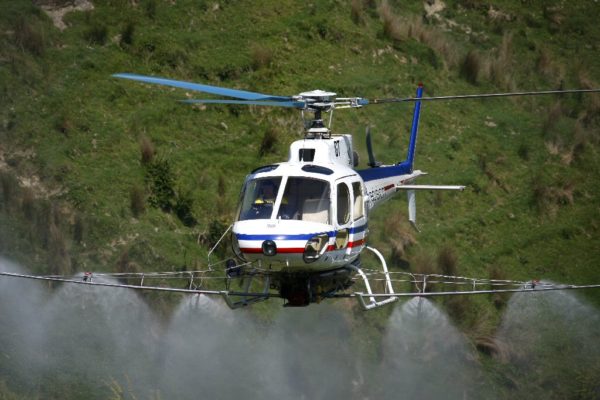

It’s not a wall and it isn’t more boots on the ground, but the Texas Senate on Monday approved a bill that would send millions of dollars of herbicides to the front lines to battle illegal immigration.
The Texas Senate passed legislation to send up to $10 million in additional funding to the Texas border to fight Carrizo cane, a weed that can grow 25 feet tall and provides cover for border crossers along the Rio Grande Valley.
“It’s all about border security,” said State Sen. Donna Campbell, a New Braunfels Republican.
Along the river, Carrizo cane grows in thick clumps, like corn or bamboo, and become a good hiding place for people illegally crossing the border. It is an exceptionally fast growing plant, able to grow about 4 inches per day and reach a mature height of over 25 feet in about a year.
Texas Take: Get political headlines from across the state sent directly to your inbox
During a hearing on the bill earlier this month, State Sen. Pete Flores, R-Pleasanton, said even infrared equipment is not effective in picking people out of the brush. Flores’s district includes hundreds of miles of the Texas border from Eagle Pass to Big Bend National Park.
Getting rid of the weed would give border to the Rio Grande River, Campbell said.
But battling Carrizo cane is easier said than done. Campbell said simply cutting it down makes it come back stronger and thicker. Instead there is an herbicide called imazapyr that can be used against the plant.
It’s not the first time Texas Legislature has battled Carrizo cane. In 2015 the Legislature set up a program to control Carrizo cane growth through the Texas State Soil and Water Conservation Board, but there was not enough funding with the program to last more than a few months. Environmental groups have objected to aerial spraying of chemicals to eradicate Carrizo cane, and the Mexican government has also expressed concerns in the past.
EPA officials have said that imazapyr, which has been in use since 1985, has not been found to pose a risk to people ingesting residue in food or drinking water, including children. The EPA also found risks to birds, mammals, fish, bees, and aquatic insects to be unlikely.
In 2008, a pilot program by the U.S. Border Patrol in southern Webb County was suspended after environmental groups objected to the herbicide.
Campbell’s bill would send $10 million for the program over the next two years. But that is contingent on the federal government sending Texas $10 million for the program first.
While the bill has cleared the Texas Senate, the issue has not yet had a hearing in the Texas House. The bill must pass both the House and the Senate by the end of May to have a chance to become law.
more recommended stories
 Fentanyl Seizures at Border Continue to Spike, Making San Diego a National Epicenter for Fentanyl Trafficking
Fentanyl Seizures at Border Continue to Spike, Making San Diego a National Epicenter for Fentanyl TraffickingFentanyl Seizures at Border Continue to.
 Utah Man Sentenced for Hate Crime Attack of Three Men
Utah Man Sentenced for Hate Crime Attack of Three MenTuesday, August 8, 2023 A.
 Green Energy Company Biden Hosted At White House Files For Bankruptcy
Green Energy Company Biden Hosted At White House Files For BankruptcyAug 7 (Reuters) – Electric-vehicle parts.
 Former ABC News Reporter Who “Debunked” Pizzagate Pleads Guilty of Possessing Child pδrn
Former ABC News Reporter Who “Debunked” Pizzagate Pleads Guilty of Possessing Child pδrnFriday, July 21, 2023 A former.
 Six Harvard Medical School and an Arkansas mortuary Charged With Trafficking In Stolen Human Remains
Six Harvard Medical School and an Arkansas mortuary Charged With Trafficking In Stolen Human RemainsSCRANTON – The United States.
 Over 300 People Facing Federal Charges For Crimes Committed During Nationwide Demonstrations
Over 300 People Facing Federal Charges For Crimes Committed During Nationwide DemonstrationsThe Department of Justice announced that.
